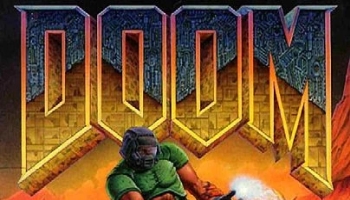 The Suikoden I & II HD Remaster was first announced in 2022, and after three long years of waiting, it is finally available on store shelves. This is the first modern re-release for any of the games in the franchise, and fans are absolutely giddy at the chance to play it again.
The Suikoden I & II HD Remaster was first announced in 2022, and after three long years of waiting, it is finally available on store shelves. This is the first modern re-release for any of the games in the franchise, and fans are absolutely giddy at the chance to play it again.
Aidan Moher (the author of the RPG-centric Fight, Magic, Items) decided to piggyback on the launch date with an announcement (via Astrolabe) that he’ll be teaming up with Boss Fight Books to publish a history of the creation of Suikoden 1 & 2 in book form:
After doing a deep dive into the history of Final Fantasy, Dragon Quest, and the rise of Japanese RPGs in the west with Fight, Magic, Items, I was left with several stories that felt unfulfilled—games and series that had more to say than I was able to fit into that book. Chief among those was Suikoden, which has seen a recent and surprising revival after the success of its creators’s kickstarted spiritual successor Eiyuden Chronicle. […] I couldn’t imagine telling one story without the other, and the end result is a rich, reported and personal look at the first two games, the people who made them, and the impact they’ve had on their genre and beyond.
From the early days when a green Yoshitaka Murayama accidentally agreed to make an RPG (a genre he didn’t play) about The Water Margin, to Miki Higashino’s revolutionary soundtrack and Junko Kawano’s timeless designs, to a lengthy interview with Suikoden II’s localization team, and the road to the 2025 remasters, Suikoden 1 & 2 runs the gamut.
Suikoden 1 & 2 will be published in 2026 as part of Boss Fight’s upcoming (and as yet unannounced) Season 8. More details about the rest of the books in that lineup will be announced at a later date.

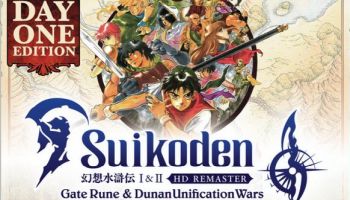



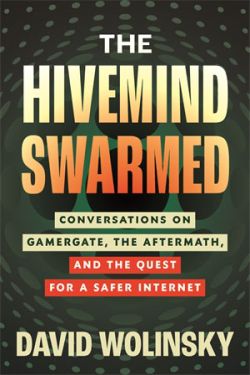 We’re ten years out from the online harassment campaign that came to be known as “Gamergate” and I’ve still never been able to wrap my head around the idea that some people thought a torrential barrage of death and rape threats was an appropriate response to writing about video games in a way they didn’t like. The creator of the
We’re ten years out from the online harassment campaign that came to be known as “Gamergate” and I’ve still never been able to wrap my head around the idea that some people thought a torrential barrage of death and rape threats was an appropriate response to writing about video games in a way they didn’t like. The creator of the 
 Blake Hester put together a sprawling
Blake Hester put together a sprawling 
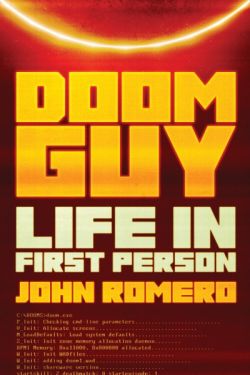 If you’ve ever seen him give an interview, you know that John Romero, one of the co-founders of id Software and the co-creator of both Doom and Quake, is one of the all-time great talkers. No matter what the question is, he’ll give you a story that you’ll remember for the rest of your life.
If you’ve ever seen him give an interview, you know that John Romero, one of the co-founders of id Software and the co-creator of both Doom and Quake, is one of the all-time great talkers. No matter what the question is, he’ll give you a story that you’ll remember for the rest of your life.


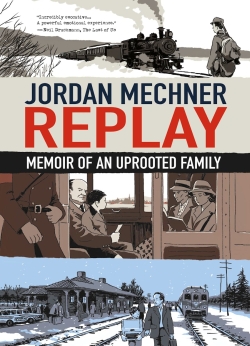 Jordan Mechner previously chronicled the early portions of his career in The Making of Karateka: Journals 1982-1985 and The Making of Prince of Persia: Journals 1985-1993, but more recently he’s turned his illustrator’s eye to his own family history.
Jordan Mechner previously chronicled the early portions of his career in The Making of Karateka: Journals 1982-1985 and The Making of Prince of Persia: Journals 1985-1993, but more recently he’s turned his illustrator’s eye to his own family history.

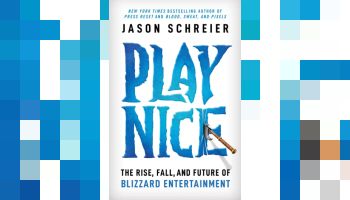
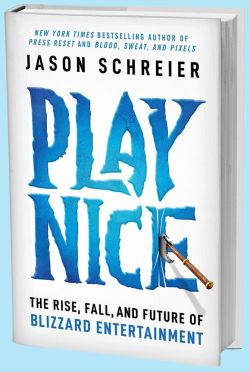 After releasing Blood, Sweat, and Pixels: The Triumphant, Turbulent Stories Behind How Video Games Are Made in 2017 and Press Reset: Ruin and Recovery in the Video Game Industry in 2021, investigative journalist Jason Schreier is getting ready to publish his next deep dive into the development side of video games.
After releasing Blood, Sweat, and Pixels: The Triumphant, Turbulent Stories Behind How Video Games Are Made in 2017 and Press Reset: Ruin and Recovery in the Video Game Industry in 2021, investigative journalist Jason Schreier is getting ready to publish his next deep dive into the development side of video games.